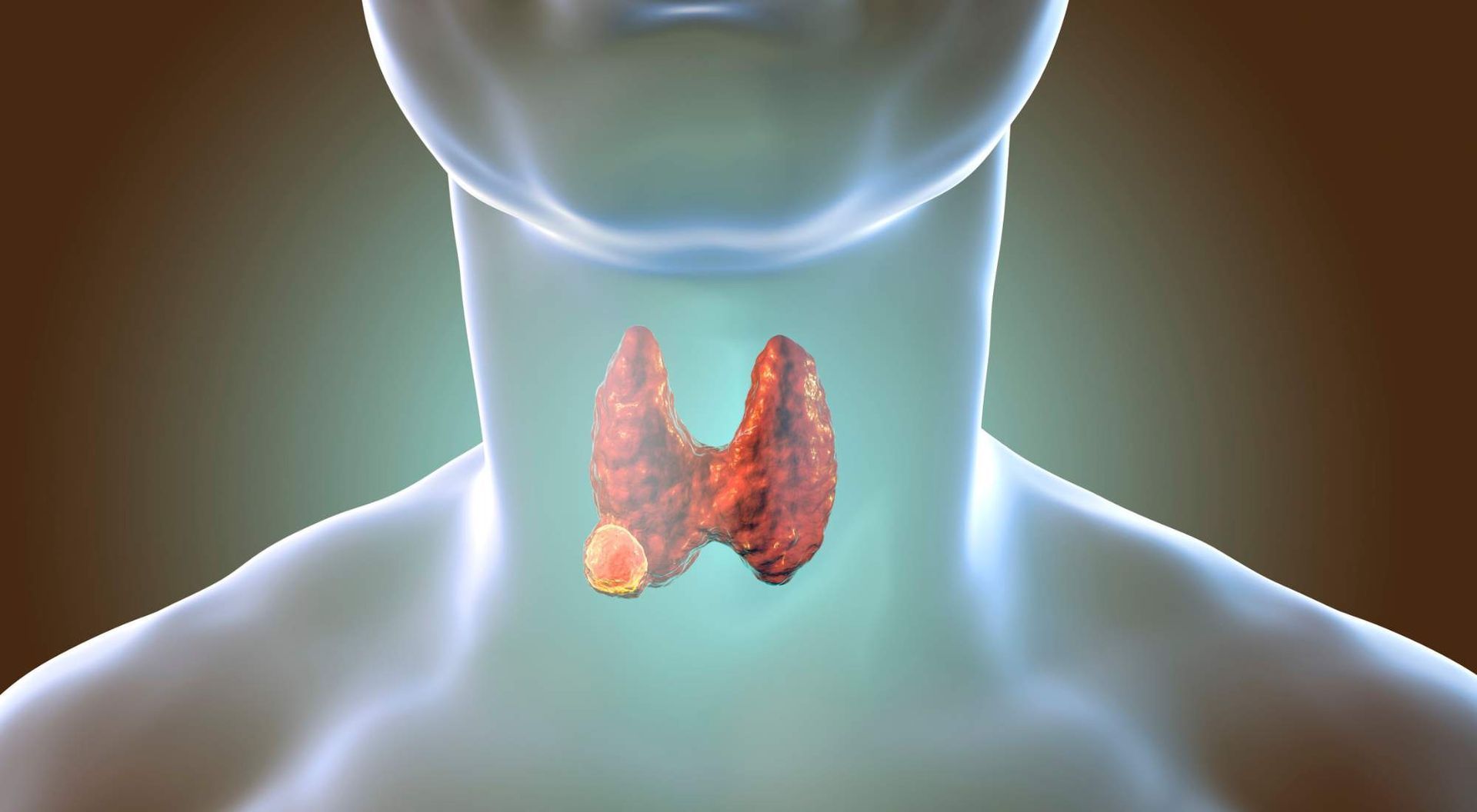Hashimoto’s Disease and Infertility: Underlying Causes and Possible Treatment Options
"The content below is not intended to be a substitute for professional medical advice, diagnosis, or treatment. Always seek the advice of your physician or other qualified health provider with any questions you may have regarding a medical condition."
If you have been diagnosed with Hashimoto’s, you are aware of how varied and extensive the symptoms of the condition are. So it will probably not come as a surprise to you that Hashimoto’s also affects fertility.
Women with Hashimoto’s disease are more likely to have trouble getting pregnant or having a safe pregnancy than those not afflicted with the disease. But Hashimoto’s is not a guarantee of infertility or difficult pregnancies.
Here we will discuss how Hashimoto’s affects fertility and how effective treatment can lead to positive childbirth outcomes and health benefits for pregnant and postpartum mothers and their babies.
Table of Contents
Does Hashimoto’s Cause Infertility?
Hashimoto's thyroiditis may have implications for fertility in some women, but the relationship is complex and not fully understood. Hashimoto’s is thought to negatively impact fertility by causing hypothyroidism or underactive thyroid.
Hypothyroidism, in turn, tends to:
- Disrupt ovulation
- Cause an imbalance of sex hormones
- Cause high prolactin levels
Hashimoto’s is 4-10 times more likely to affect women than men, but it doesn’t always have the above effects because it doesn’t always cause hypothyroidism.
Rarely, it can cause hyperthyroidism, or overactive thyroid, which can also affect fertility, but Hashimoto’s is the main cause of hypothyroidism.
Some women develop hypothyroidism during pregnancy, but it can be diagnosed before that by a healthcare professional who can test thyroid levels and evaluate other symptoms you may be experiencing, including:
- Fatigue
- Weight gain
- Constipation
- Dry skin
- Irregular periods
- Hair loss
- Sensitivity to cold
How Many People With Hashimoto’s Experience Infertility?
Surprisingly, Hashimoto’s can cause infertility in
approximately half of women who have the disease.
How Can Hashimoto’s Cause Infertility?
Hashimoto's is an autoimmune disease that causes the body to attack the thyroid gland, recognizing it as foreign. As thyroid cells are destroyed, the gland can no longer produce proper amounts of the hormones it normally produces.
Hypothyroidism occurs when the thyroid does not produce enough thyroid hormone, and it is the primary result of Hashimoto’s disease. It is not curable, but it can be treated to lessen its negative effects.
Hyperthyroidism occurs when the thyroid produces too much thyroid hormone, but it is rarely the result of Hashimoto’s disease.
Thyroid hormones play a crucial role in regulating the menstrual cycle and fertility. Abnormal thyroid hormone levels can lead to many effects on reproductive health. To explore the link between
Hashimoto’s and infertility, consider the following impacts of hypothyroidism.
Hormonal Impacts
In hypothyroidism, there is an increase in thyrotropin-releasing hormone (TRH), which in turn increases thyroid-stimulating hormone (TSH) and prolactin levels.
TSH levels are an indicator of your body’s level of thyroxine. If the level is low, more TSH is produced to stimulate the production of more thyroxine. This mechanism is inadequate, however, because the thyroid is unable to produce enough thyroxine. This can produce various effects that hinder a person’s overall well-being and thus their fertility, even if indirectly, including:
- Fatigue
- Weight gain
- Constipation
- Muscle cramps
- Confusion
- Slow pulse
High prolactin levels affect fertility more directly by interfering with ovulation. When an egg is not released, fertilization cannot happen.
Other hormonal imbalances that may affect fertility include lower estrogen and testosterone levels. Hashimoto’s often occurs in conjunction with polycystic ovarian syndrome (PCOS).
PCOS tends to cause higher levels of androgens like testosterone. Strangely, studies have indicated that this increase is not seen in people who have
both conditions. Perhaps this is because thyroid autoimmunity seems to suppress androgen production, as indicated by the study linked above.
Difficulty Conceiving
Some individuals with Hashimoto's and untreated or poorly managed hypothyroidism may experience difficulties with conception. The following circumstances can make it more challenging to get pregnant:
- Irregular periods – A common hindrance to getting pregnant, especially if you are trying to time intercourse during a fertile window. If your fertile window changes, it will be difficult to time appropriately. An irregular cycle might also indicate that ovulation isn’t happening.
- Anovulation (lack of ovulation) – No egg is released from your ovary during your menstrual cycle. Without an egg, fertilization cannot happen. There are many possible causes of anovulation, including abnormal thyroid hormone levels.
Miscarriage Risk
Untreated or inadequately managed thyroid dysfunction, including Hashimoto's, during pregnancy is associated with an increased risk of miscarriage, preterm birth, and developmental issues in the baby. This underscores the importance of thyroid management for individuals with Hashimoto's who are planning to conceive or are already pregnant.
Any conditions that threaten the mother’s health endanger the baby as well. There are several conditions that women with Hashimoto’s are at greater risk of developing:
- Preeclampsia – This condition, which usually develops in the latter half of pregnancy, is characterized by dangerously high blood pressure and high protein in the urine. It can impair kidney and liver function as well as blood flow to the placenta, put stress on the heart, and cause fluid to build up in the lungs. These issues can lead to preterm delivery.
- Anemia – A low red blood cell count or low hemoglobin in the mother can lead to the same deficiency in the baby later on during gestation. Being severely anemic during the first two trimesters can lead to a preterm delivery or a low birth weight. It also impairs the mother’s immune system and increases her risk of blood loss during labor.
- Placental abruption – The partial or complete separation of the placenta from the uterine wall before delivery can have serious consequences, such as severe hemorrhaging of the mother and oxygen and nutrient deprivation in the baby. There are different degrees of placental abruption, ranging from mild to severe.
The Importance of Treating Hashimoto’s Symptoms
Properly managing Hashimoto's and maintaining thyroid hormone levels within the normal range with medication (such as levothyroxine) can often restore regular menstrual cycles and improve fertility.
In many cases, addressing thyroid issues can lead to successful conception and
healthy pregnancies. But when left untreated, fertility may be a problem for some women.
Hashimoto’s and Infertility Treatment Options
You might consider consulting with an endocrinologist who specializes in thyroid disorders. They can provide expert guidance on managing Hashimoto's and optimizing thyroid health.
A fertility evaluation may also be informative. Both partners should undergo a comprehensive fertility evaluation to identify any underlying issues contributing to infertility. This evaluation may include:
- Hormone testing
- Imaging studies
- Assessments of reproductive health
Thyroid Hormone Replacement
Properly managing thyroid hormone levels is a critical step. Most often, individuals with Hashimoto's and hypothyroidism are prescribed a thyroid hormone replacement medication (such as levothyroxine). The goal is to maintain thyroid hormone levels within the normal range, which can help regulate menstrual cycles and improve fertility.
Monitoring and Testing
Regular monitoring of thyroid function, as indicated by thyroid-stimulating hormone (TSH) levels, is essential. Adjustments to medication dosage may be needed over time to ensure thyroid function remains stable and avoid overmedicating.
Being
overmedicated during pregnancy can lead to abnormal brain development for the baby and possible behavioral problems later in life.
Fertility Treatments
If fertility issues persist despite thyroid hormone management and other interventions, fertility treatments are an option. These treatments can bypass some of the fertility obstacles associated with thyroid disorders.
There are a variety of fertility treatments available:
- Ovulation Induction: Medications like clomiphene citrate or letrozole can stimulate ovulation in women with irregular cycles.
- Intrauterine Insemination (IUI): IUI involves placing prepared sperm directly into the uterus during ovulation.
- In Vitro Fertilization (IVF): IVF may be recommended for more complex fertility issues. It involves retrieving eggs, fertilizing them with sperm in a laboratory, and transferring embryos to the uterus.
- Other Assisted Reproductive Technologies (ART): Depending on individual circumstances, other ART procedures like intracytoplasmic sperm injection (ICSI) or preimplantation genetic testing (PGT) may be considered.
Alternative Therapies
Alternative therapies that may boost fertility include:
- Acupuncture – May help restore ovary function and balance hormones.
- Chiropractic care – May reduce nervous system interference to help the body function more adequately.
- Meditation – May reduce stress and balance hormones, minimizing factors that depress fertility.
- Aromatherapy – Essential oils can help reduce stress and balance hormones, as well as regulate menstruation and reduce inflammation.
- Supplements – The following micronutrients may improve fertility:
- Selenium
- Iodine
- Vitamins B6, C, D, and E
- Iron
- Folic acid
- DHA
Lifestyle Modifications
Maintaining a healthy lifestyle can positively impact fertility. A healthy lifestyle is characterized by:
- A balanced, wholesome diet: Whereas a diet with too much saturated fat and refined sugar is linked to poorer fertility, several nutrients are linked to greater fertility:
- Unsaturated fats, especially omega-3s – Omega-3s can improve egg quality and pregnancy rates, as well as help support fetal and infant development.
- Whole grains – These include quinoa, millet, barley, buckwheat, brown rice, and spelt. Regular consumption of these can improve endometrial thickness, which increases the likelihood of implantation of the egg in the uterine lining.
- Fruits, vegetables, and legumes – Oranges, strawberries, leafy greens, beans, and nuts are great sources of folate, which is critical for the neural development of the fetus.
- Fish – Eating low-mercury fish two to three times per week can supply you with good amounts of rich protein and DHA, which helps support fetal growth.
In particular, the following nutrients are very important for fertility and healthy pregnancy:
- Folate helps to make and repair DNA, produce red blood cells, and support the baby’s brain and spinal cord development. It is easy to develop a deficiency of folate because your body can’t store it. You need a continual supply from diet or supplementation.
- Omega-3s are important for the reasons listed above. Good sources of omega-3s include oily fish (those that are not high in mercury), flax seeds, chia seeds, hemp seeds, and walnuts.
- Vitamin B12 is also essential in the making of DNA, the production of red blood cells, and the development of the baby’s brain and spinal cord. B12 deficiency has been linked to difficulties with fertility as well as complications during pregnancy. Good food sources of this vitamin are beef, turkey, salmon, eggs, yogurt, and cheddar cheese.
- Regular exercise – Regular aerobic exercise of at least 30 minutes per day is good for regulating ovulation, but it is important to avoid too much strenuous exercise if you are trying to get pregnant, particularly if you have a low BMI (<18.5). If you are not underweight and already have an established workout routine that involves strenuous exercise, caregivers usually indicate it is okay to continue.
Regular moderate exercise (such as walking, yoga, dancing, and swimming) can reduce your stress and improve your sleep and mental health, as well as reduce your risk of cardiovascular disease, osteoporosis, breast cancer, and diabetes.
- Positive stress management – While stress alone can’t be proven to cause infertility, studies have shown that high stress does interfere with a woman’s ability to get pregnant. Stress management, then, can increase your chances of getting pregnant. Things you can do to manage stress include:
- Practice relaxation techniques, such as deep breathing and meditation.
- Ensure that you get enough exercise and sleep.
- Spend time with friends and family who are supportive and good listeners.
- Listen to music.
- Engage in a focused, creative hobby.
- Enlist the help of a therapist or counselor if you are overwhelmed and have trouble following a routine that includes the above stress relievers.
HealthierU: Holistic Support for Women With Hashimoto’s and Infertility Issues
If you struggle with Hashimoto’s disease and infertility, please consider seeking support from HealthierU. We can help you develop a plan for addressing infertility associated with hypothyroidism.
We do this by assisting you with a supplementation regimen and providing guidance in making supportive lifestyle changes.






